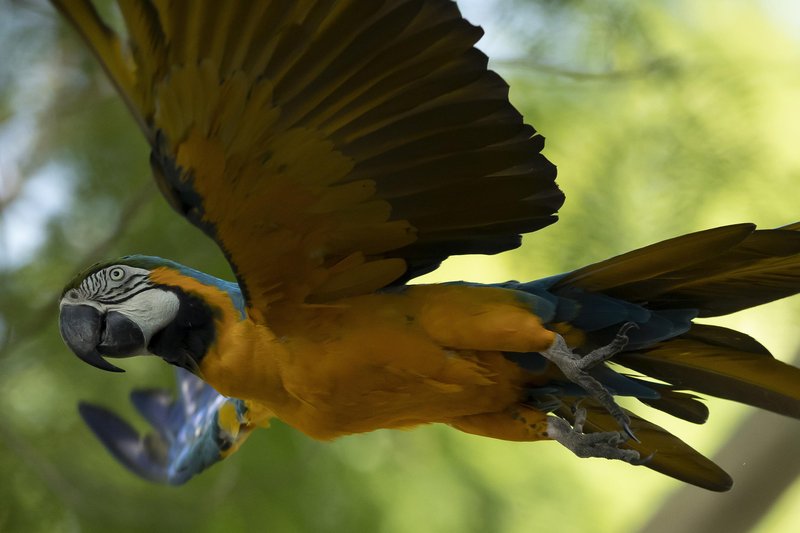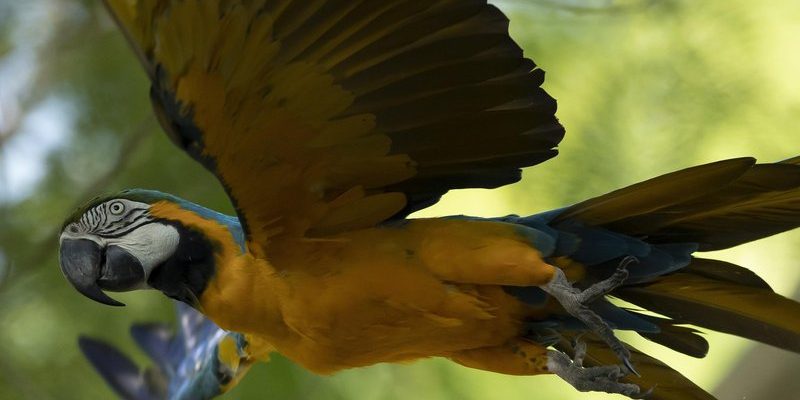
You might think you know a thing or two about macaws, but there’s a lot more beneath their vibrant feathers. Understanding these facts can deepen your appreciation for them, whether you’re considering adopting one or simply want to impress your friends with your bird trivia at the next dinner party. So, grab a cup of coffee, and let’s dive into some incredible things about macaws that you may not yet know!
1. Macaws Have a Long Lifespan
When it comes to longevity, macaws are among the longest-living bird species. These beautiful birds can live anywhere from 30 to 50 years, with some even reaching up to 80 years in captivity! This long lifespan means that adopting a macaw is more like adding a family member than just getting a pet.
Here’s the thing: if you’re thinking about getting a macaw, be prepared for a long-term commitment. Many macaw owners often joke that they have to plan their retirement around their feathered friends! Owning a macaw requires not just love and attention but also a commitment to their care throughout their lives.
2. They Are Highly Social Creatures
Macaws are incredibly social, which makes them lively companions. In the wild, they live in large flocks that can include dozens of other macaws. This social nature means they thrive on interaction, not just with other birds but with humans too.
You might be wondering how this impacts their behavior. Well, because they are so social, macaws can become bored or lonely if left alone for long periods. That’s why it’s essential to spend quality time with them daily, whether it’s playing, talking, or even training. Having a partner, like another bird or a human playmate, can significantly improve their quality of life.
3. Their Beaks Are Powerful Tools
Have you ever noticed how big and strong a macaw’s beak is? It’s not just for show! Macaws’ beaks are mighty and are used for various activities, from cracking open tough nuts to climbing trees.
These beaks can exert impressive pressure; some species can generate over 200 pounds of force! This strength is vital for their survival in the wild, allowing them to access a diet primarily consisting of fruits, nuts, and seeds. However, this means that if you’re considering owning a macaw, you’ll need to be careful—those beaks can cause damage if a bird gets scared or agitated.
4. Macaws Come in Various Colors
One of the most striking things about macaws is their dazzling colors. You might think of the traditional blue and gold macaw, but there are many other varieties! For instance, there’s the red-and-green macaw, the scarlet macaw, and even the hyacinth macaw, which is the largest species and sports a deep blue hue.
Each type has its personality and quirks, too. The vibrant colors not only serve as a way to identify different species but also play a crucial role in communication, mating, and even camouflage among foliage. So, whether you’re drawn in by the colors, the personality, or both, there’s a macaw out there for everyone!
5. They Have an Impressive Vocabulary
Macaws are known for their ability to mimic sounds, and they can even learn to speak a few words! While they might not hold a full conversation like a parrot, they certainly add a splash of humor to your home with their chatter.
Here’s a fun anecdote: one macaw owner reported that their bird could say “I love you” in a voice that sounded surprisingly like their partner! This vocal talent stems from their social nature; in the wild, they use sounds to communicate with flock mates. So, if you’re looking for a feathered friend that can talk back (and maybe even crack a joke), a macaw might be your best bet!
6. Macaws Are Intelligent Problem Solvers
If you think macaws are all colorful feathers and squawks, think again! These birds are incredibly smart, often matching the intelligence of a young child. They are known for their ability to solve complex puzzles, which can be quite entertaining to watch.
For example, many macaw owners set up food puzzles to challenge their birds, keeping them mentally stimulated. Not only does this provide exercise for their minds, but it also prevents boredom, which can lead to behavioral issues. So, consider your future macaw as a clever companion that requires mental engagement and fun challenges to thrive.
7. Their Natural Habitat Is Disappearing
Despite their resilience, macaws face significant threats due to habitat loss. Deforestation and illegal trapping are huge problems for these beautiful birds. Rainforests, where many macaws live, are being destroyed at an alarming rate, leaving these creatures without homes.
Conservation efforts are crucial in protecting them. Organizations around the world work tirelessly to restore habitats and combat illegal trade. If you love macaws, supporting such initiatives can help ensure that future generations get to enjoy these wonderful birds.
8. They Are Most Active During the Day
Unlike some birds that are more nocturnal, macaws are diurnal, meaning they are most active during the day. This makes them ideal pets for those who enjoy watching their antics in action—because they’re often quite the performers!
You might notice that they enjoy playing and exploring during daylight hours while settling down to rest in the evening. By understanding their nature, you can create a routine that helps your macaw feel secure and engaged throughout the day.
9. They Can Form Strong Bonds
Macaws, like many other parrots, form strong emotional bonds with their owners. This is part of what makes having a macaw so rewarding. They can show love and affection, often snuggling up to their favorite humans or seeking attention and affection.
However, this also means that macaws can experience separation anxiety. If they feel neglected, they might act out—sometimes leading to destructive behavior. It’s vital to spend regular quality time with your macaw to foster a solid bond and keep them happy.
10. Proper Nutrition Is Key
Just like us, macaws require a balanced diet to be healthy. Their natural diet consists of a variety of seeds, nuts, fruits, and leafy greens. In captivity, it’s essential to replicate this diet as much as possible.
A good diet helps maintain their vibrant feathers and overall health. You can provide a mix of commercially available safe pellets, fresh fruits, and occasional nuts while avoiding foods that are toxic to birds, like chocolate and avocado. Keeping an eye on their nutrition is a big part of responsible macaw ownership!
As you can see, macaws are not just beautiful creatures; they are intricate beings filled with personality and quirks. By understanding these facts, you can appreciate them on a whole new level. Whether you’re an existing macaw owner or just someone who admires these colorful birds, there’s always more to discover about their fascinating world.

